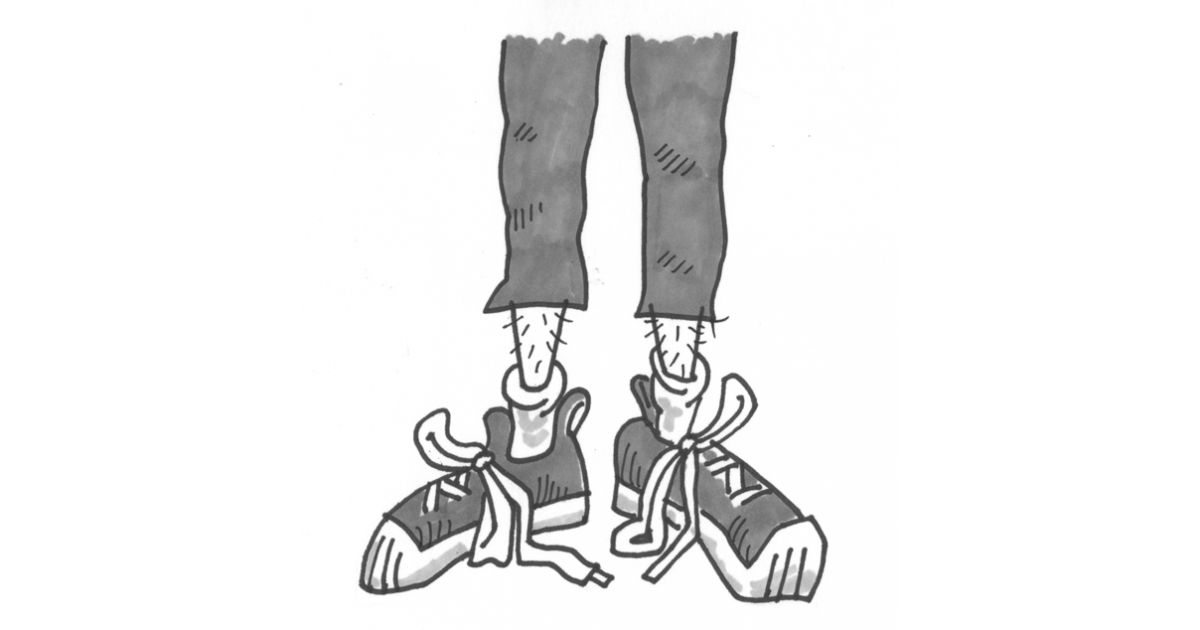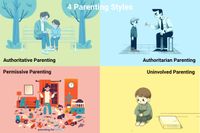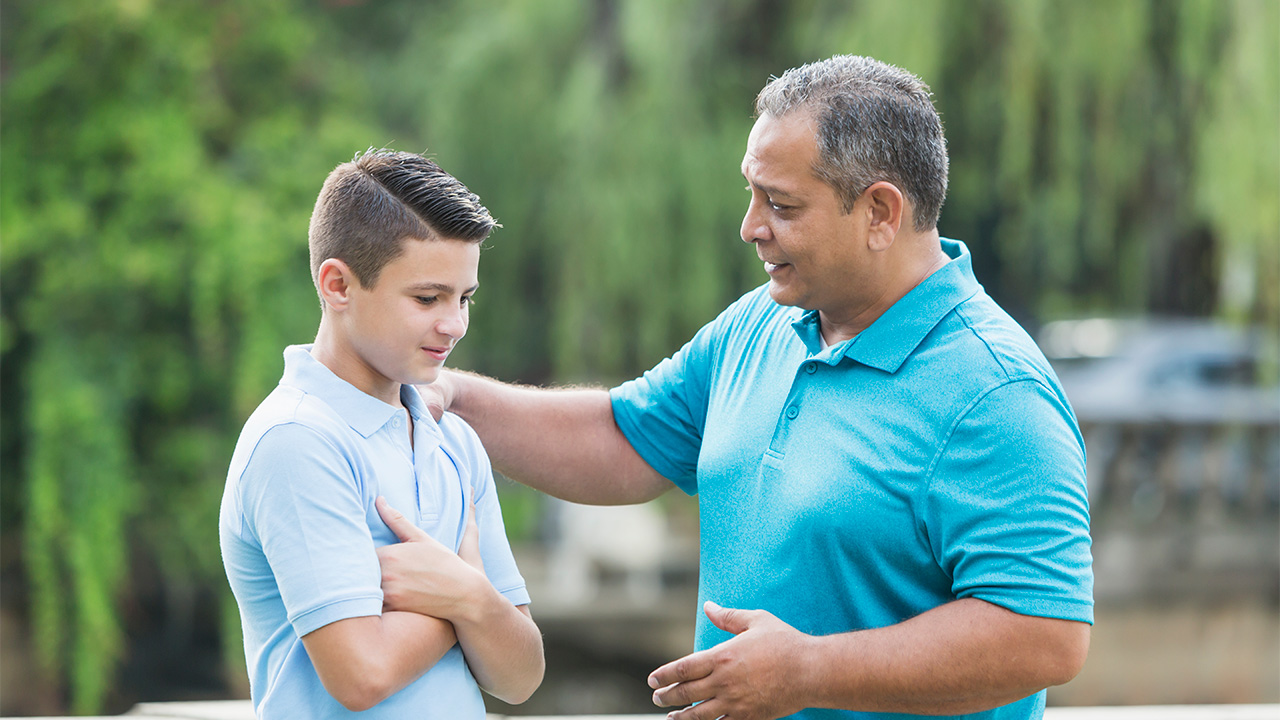Explorez les résultats de recherche web liés à ce domaine.
Your toddling child is now a teen who's learning to be an adult. Adolescence is an important part of the individuation process. How does parenting change?
ADOLESCENCE IS AN important part of the individuation process. During this time, teens try to find out who they are and separate from their parents. The problem is that most parents tend to do many things during this time that make situations worse instead of better.An excerpt from the Positive Discipline for Teenagers book by Dr. Jane Nelsen and Lynn Lott. REMEMBER WHEN YOUR teen was a baby just learning to walk? What a milestone. You didn‘t want to miss any of it, and you were very supportive and encouraging. You would take her little hands in yours and start walking along with her—but you knew you had to let go in order for her to walk by herself.It is also a time when you can explore your own unresolved teen issues. Every chapter in this book has such valuable information that it was difficult to decide which chapters should be at the beginning. We thought all of the chapters warranted at least first or second status. Therefore, read the chapters in any order that appeals to you, because all of them will help you retrain yourself so you can parent your teen more effectively—and with perspective.WE HOPE THAT you are operating in a kind, firm, and encouraging way. We know that going through the teen years can be like going through a war zone for both you and your teens and that it is easy for kindness and firmness to fall away and be replaced by less encouraging parenting methods.

Parenting can be the most rewarding work of adult life.

Teens also vary in the rate and ... for discipline, guidance, love and support will vary throughout their teenage years. In the next section we provide some guidelines for parents to help them figure out how to provide direction and boundaries to their adolescents of all ages ...
Teens also vary in the rate and speed that they develop self-discipline and good decision-making skills so their needs for discipline, guidance, love and support will vary throughout their teenage years. In the next section we provide some guidelines for parents to help them figure out how to provide direction and boundaries to their adolescents of all ages without interfering too much, or too little.Discipline, if it is excessive and harsh, can become controlling and abusive while a lack of discipline is a type of neglect. Meanwhile, independence and freedom without responsibility can place youth in highly dangerous situations. To complicate things further, the correct balance constantly changes as youth continue to mature throughout their adolescent period. When parents strike the right balance of love with discipline, liberties with limitations, and independence with responsibility, adolescents feel secure, valued, and loved.Sometimes it is tempting to think of adolescent children as mini-adults who no longer require the same degree of parental support and direction as they once did when they were younger; but, this would be an erroneous conclusion. In fact, during early and middle adolescence, youth may need even more emotional support, guidance, and discipline than their younger siblings.Discover how parents can strike the right balance between love, discipline, independence, and responsibility when raising teenagers. This balance is crucial for their security, value, and resilience. Get guidelines for providing support and guidance without being overprotective.


Adolescence is a period of unique growth and development, making teenagers more vulnerable to mental health problems when they experience physical, emotional, and social changes. There are 13 strategies to help parents discipline and support a teenager grappling with depression, including setting ...
Adolescence is a period of unique growth and development, making teenagers more vulnerable to mental health problems when they experience physical, emotional, and social changes. There are 13 strategies to help parents discipline and support a teenager grappling with depression, including setting clear goals, reflecting on priorities, using inductive discipline, building relationships, improving sleep habits, encouraging physical activities, and more.If your teenager is in immediate danger, call 911 or go to the nearest emergency room. ... How can we improve it? This article contains incorrect information This article doesn't have what I'm looking for ... Patrick RB, Gibbs JC. Inductive Discipline, Parental Expression of Disappointed Expectations, and Moral Identity in Adolescence.During adolescence, teens are more susceptible to depression due to rapid growth and brain changes. Find out how to support them.Discipline is most effective when it focuses on education and guidance rather than punishment. Not punishing doesn’t mean your teen gets a “free pass” for misbehavior. Teaching through understanding, patience, and love often proves to be far more effective. A study conducted by Ohio State University in 2012 supports this approach, finding that teenagers whose parents practiced inductive discipline, which involves reasoning and discussion, exhibit higher moral identity and more prosocial behavior.

Managing teenage behavior can be a challenge sometimes, but certain strategies can help. But first, it's important to understand the common challenges teenagers face and how to step into their world.
Teens like to test the limits of their independence, explains Caroline Fulton, PsyD, a child and adolescent psychologist at Northwestern Medicine Central DuPage Hospital in Winfield, Illinois. Don’t be surprised if your teen argues when you say no, or if they go behind your back to do as they please. Periodically breaking curfew, sneaking out, and making other mistakes are also common teen behaviors. There’s also often a tug-of-war between parents and teens.Typical teen behavior varies quite a bit, but you may see the following: ... The sometimes tumultuous changes of adolescence are a normal part of growing up. It can be tricky to strike a balance that gives your child enough freedom yet still offers plenty of guidance. "Parents should aim to give their teens some space to express themselves, while also ensuring they are meeting basic responsibilities and behaving safely," suggests Dr.Signs of teen dating violence. American Academy of Pediatrics. 2016. Effective discipline to raise healthy children. American Academy of Pediatrics. 2018, ... New Report Shows Black Girls Face More Frequent Discipline In School—Here's What Parents Need to KnowThe bedrock of effective discipline for teens is open communication, trust, and respect between the parent and child.
Adolescence is filled with trial and error as teens explore and try new things. Conflicts often happen when teens rebel against family rules or take risks. Parents need tools for teen discipline when conflicts happen…and they will happen!
Adolescence is filled with opportunities to learn and grow, and so is parenting adolescents. No one gets it right all the time, so give yourself a break when a teen discipline strategy doesn't go well.Establish rules and connect and communicate with your rebellious teen by using our positive parenting techniques. GetParentingTips.com offers resources to help parents, caregivers, childcare providers, community members, companies, and organizations give our children hope for a brighter future.The Get Parenting Tips website offers expert advice and resources to help parents and caregivers give our children hope for a brighter future.Positive parenting encourages you to stay positive about yourself even when things are tough. Try to remember it's not personal when your teen lashes out with rude words or gestures. Emotions run high during adolescence, and teens may get highly frustrated when things don't go their way.


The biggest advantage of the permissive ... among adolescents from authoritative, authoritarian, indulgent, and neglectful families,” published in Child Development. The biggest disadvantage of permissive parenting is that children have lower self-control and are more prone to drug abuse. The effects of permissive parenting on children include impulsivity, lack of self-discipline, poor ...
The biggest advantage of the permissive parenting style is that children have high self-confidence, according to a 1991 study, “Patterns of competence and adjustment among adolescents from authoritative, authoritarian, indulgent, and neglectful families,” published in Child Development. The biggest disadvantage of permissive parenting is that children have lower self-control and are more prone to drug abuse. The effects of permissive parenting on children include impulsivity, lack of self-discipline, poor decision-making, academic underachievement, and entitlement.Adolescents from permissive families had significantly lower cognitive competence than those from either authoritative or democratic families, according to Baumrind’s 2010 study, “Effects of Preschool Parents’ Power Assertive Patterns and Practices on Adolescent Development,” published in Parenting: Science and Practice. Uninvolved parenting (neglectful parenting) involves low levels of control or demandingness and low levels of warmth or responsiveness. Uninvolved parents are minimally involved in their children’s lives. Parents rarely communicate with children and provide little physical or emotional needs, guidance, or discipline.Agreeable parents tend to be authoritative, according to a 2010 research in the Netherlands titled “Personality and parenting style in parents of adolescents,” by Rutger CME Engels et al., published in the Journal of Adolescence. Psychological Factors: Parents and children’s mental and emotional states influence their interactions. For example, parents with low self-efficacy tend to give up easily when faced with parental difficulties and, therefore, adopt an authoritarian style to control using harsh discipline, according to a 2022 study in China titled “Impact of Parenting Style on Early Childhood Learning: Mediating Role of Parental Self-Efficacy” by Kong, Chuibin and Fakhra Yasmin, published in Frontiers in Psychology.The 4 types of parenting styles are authoritative, authoritarian, permissive, and uninvolved parenting styles.
Our teens need “Kind and Firm” parenting. Parenting that tells them, “I love you and respect you, and I also love and respect myself. Kind and Firm parenting creates balance, communication and respect within families. It is respectful to the teen, the parent and the situation at hand.
Our teens need “Kind and Firm” parenting. Parenting that tells them, “I love you and respect you, and I also love and respect myself. Kind and Firm parenting creates balance, communication and respect within families. It is respectful to the teen, the parent and the situation at hand.We’re adults, we’ve been there, done that….Now it is our teen’s turn to go through the process of growing up. This process is sometimes referred to as “individuation”. Individuating is a process that kids go through to become more of themselves, to become independent from their parents.It often looks like rebellion because it appears that they are doing everything possible to go against our values and our morals. What is important to us, as parents, may become a place of rebellion for our teens. By individuating they get to experience the other side, they get to experiment with life in a different way.The next time you are feeling challenged, provoked or threatened, take time to calm down and then try one of these Kind and Firm Parenting Tools: Talk with your teenager-not to, at, or for him or her.
Positive Parenting for Those Important Teen Years Adolescence is often a time of great stress and turmoil—not only for kids going through it, but for you, their parents as well. During the teen years, kids aggressively begin to explore a new sense of freedom, which often leads to feelings of resentment and powerlessness for parents who increasingly are excluded from their children's lives. This revised edition of Positive Discipline ...
Positive Parenting for Those Important Teen Years Adolescence is often a time of great stress and turmoil—not only for kids going through it, but for you, their parents as well. During the teen years, kids aggressively begin to explore a new sense of freedom, which often leads to feelings of resentment and powerlessness for parents who increasingly are excluded from their children's lives. This revised edition of Positive Discipline for Teenagers shows you how to break the destructive cycle of guilt and blame and work toward greater understanding and communication with your adolescents.Inside, you'll discover proven, effective methods for working with your teens. Over 1 million Positive Discipline books sold! "I highly recommend this book to parents, teachers, and all others who work with young people. It is one of the best books I have seen on helping adults and adolescents turn their conflict into friendship.Read 47 reviews from the world’s largest community for readers. Positive Parenting for Those Important Teen Years Adolescence is often a time of great stre…The is a must-have for parents of teenagers. ... Read part of it. ... The section on depression should entirely discredit this entire book. ... I disagreed with the first 30% of this book it seemed. But many chapters from the second half brought up some great points. ... Libro de consulta permanente de acuerdo a las diferentes etapas de un/a adolescente.


Discover influential developmental theorists and their theories on cognitive, moral, and identity development in adolescence. Gain insight into the complexity of human development and the inter-related aspects of physical, cognitive, emotional, social, moral, and sexual development.
Physical Development in Adolescence · Guide to Physical and Emotional Changes in Puberty · How Social Pressures Affect Teen Behavior · Teen Relationships with Peers and Adults · Parenting Teens: Balancing Discipline and Love ·Before we begin to discuss the specific developmental changes that occur during adolescence, it might be useful to provide a more general overview of the enormous magnitude and complexity of adolescent development since it encompasses so many different, yet inter-related, areas of maturity.Furthermore, since several renowned developmental theorists have influenced and informed our current understanding of adolescent development, we will briefly re-introduce these theorists to provide a context for our subsequent discussion of adolescent development.Later, in the mid-60s James Marcia chimed in with his identity status theory. Marcia was particularly interested in the way adolescents develop their own individual identity within the framework of their families and larger culture.

Teens also vary in the rate and ... for discipline, guidance, love and support will vary throughout their teenage years. In the next section we provide some guidelines for parents to help them figure out how to provide direction and boundaries to their adolescents of all ages ...
Teens also vary in the rate and speed that they develop self-discipline and good decision-making skills so their needs for discipline, guidance, love and support will vary throughout their teenage years. In the next section we provide some guidelines for parents to help them figure out how to provide direction and boundaries to their adolescents of all ages without interfering too much, or too little.Discipline, if it is excessive and harsh, can become controlling and abusive while a lack of discipline is a type of neglect. Meanwhile, independence and freedom without responsibility can place youth in highly dangerous situations. To complicate things further, the correct balance constantly changes as youth continue to mature throughout their adolescent period. When parents strike the right balance of love with discipline, liberties with limitations, and independence with responsibility, adolescents feel secure, valued, and loved.Sometimes it is tempting to think of adolescent children as mini-adults who no longer require the same degree of parental support and direction as they once did when they were younger; but, this would be an erroneous conclusion. In fact, during early and middle adolescence, youth may need even more emotional support, guidance, and discipline than their younger siblings.Discover how parents can strike the right balance between love, discipline, independence, and responsibility when raising teenagers. This balance is crucial for their security, value, and resilience. Get guidelines for providing support and guidance without being overprotective.

PSYCHOLOGIE - Si certains comportements mettent l'enfant en réel danger, la plupart tiennent plutôt de simples tentatives d'autonomisation qu’il faut savoir encadrer en gardant ses distances.
Mais comme l'adolescent est dans une démarche de différenciation et d'autonomisation, cela n'a pas la même résonance chez les parents.« On a tendance, ces dernières années, à pathologiser l'adolescence, souligne Hélène Romano, psychothérapeute et autrice de Quand la vie fait mal aux enfants (Odile Jacob). Comme si les prises de risques étaient le propre de l'adolescent, alors que le tout-petit en prend aussi lorsqu'il apprend à marcher par exemple.
The goal of discipline is to gain more control over your kids -- without being too controlling. Tweens and teens push boundaries to see how their parents will respond. It's important to establish clear rules, and to have consequences for breaking those rules.
You want your children to do the right things, but disciplining teens isn't easy. When they talk back, you can't just put them in a time-out like you did when they were toddlers. Effective parenting of teens requires smarter, stronger discipline strategies.The goal of discipline is to gain more control over your kids -- without being too controlling. Tweens and teens push boundaries to see how their parents will respond. It's important to establish clear rules, and to have consequences for breaking those rules.They're adept at spotting any sign of parental weakness. When you waffle and give in to their pleas for leniency, they are going to expect the same response every time they misbehave or break a rule. Being consistent about teen discipline also means that both parents need to be on the same page.If one parent always says "yes" and the other always says "no," your teen is going to know exactly which parent to ask. While you're being firm, don't forget to also be fair and understanding. A little empathy goes a long way when disciplining teens.


This finding has sparked a vast interest in studying adolescent brain growth, particularly in relation to typical mood swings, risk-seeking behavior, and impulsivity during the teenage years. It is important to understand that the discord between parents and teens often stems from adolescent ...
This finding has sparked a vast interest in studying adolescent brain growth, particularly in relation to typical mood swings, risk-seeking behavior, and impulsivity during the teenage years. It is important to understand that the discord between parents and teens often stems from adolescent brains not functioning like fully developed adult brains.We recommend Dr. Eichin Chang-Lim’s books Talking About Adolescence: Book 1: Anxiety, Depression, and Adolescent Mental Health and Book 2: Talking About Adolescence: Book 2: Supercharge Your Body and Brain Power. How To Stop Arguing With Your Teen: 10 Tips For ParentsParenting Teens Means Learning to Love Hard When They're Hard to Love · Dr. Eichin Chang-Lim is the author of the “Talking About Adolescence” series. She is passionate about promoting mental health awareness and helping teens live happy and fulfilling lives.The negative effects of harsh, strict discipline are vast. This parenting style harms relationships and has long-term consequences.

Bien connue chez l'humain, la crise d'adolescence ne fait pas trop parler d'elle chez le chien et pourtant... elle existe bel et bien. Avec un réel effet chez l'animal, il est important de la comprendre pour pouvoir la gérer.
Pendant son adolescence, le chien peut adopter des comportements qui risquent de déconcerter le maître (mordiller les mains, sauter sur les invités, aboyer excessivement, etc.). Alors qu'il avait acquis une certaine discipline, le chien donne la sensation de faire une régression au point d'uriner dans des lieux inadaptés par exemple.Afin de bien répondre à la crise d'adolescence, il est important de comprendre que le chien adolescent dispose d'une capacité de concentration moins importante qu'à l'accoutumée.
Life for adolescents in Latin America ... development. Many adolescents in the region grow up in poverty and are often vulnerable to different forms of violence that occurs in many settings, including the home, with many parents condoning the use of violent discipline as means of ...
Life for adolescents in Latin America and the Caribbean is often challenging with obstacles that may interfere with their positive development. Many adolescents in the region grow up in poverty and are often vulnerable to different forms of violence that occurs in many settings, including the home, with many parents condoning the use of violent discipline as means of education.Effective parenting provides a powerful opportunity to influence adolescent development.develop parents’ skills to communicate respectfully with adolescents in a manner that respects their evolving capacities; support parents to employ positive, non-violent discipline techniques that rely on communicating expectations and setting parameters around adolescents’ behaviour;Adolescence is a period of rapid physical, social, sexual and psychological change. Parents play an essential role in influencing how they interact with this complex period of transition that shapes their development and identity.

Teens need calm, firm discipline in order to thrive during adolescence. Learn how to be his success ambassador.
Frustrated parents go with angry teens like Labrador pups go with Clydesdale horses in Super Bowl commercials. And your story can have a happy ending, too. The secret formula lies in effective discipline.If you master a few core principles for setting rules like a boss, your teen will be a lot easier to manage. But first you need to understand the roots of her rebellion... As a rookie therapist, I was taught that adults from overly strict or overly permissive households generally want to raise their children in the opposite manner in which they were raised. The problem is both dynamics lead to black-and-white parenting. For example, if your folks were overly strict and/or harsh with discipline, it's not uncommon to rebel against rules, or become anti-authority when raising kids of your own.This parent overcompensates by indulging and doing everything for her teen. But without room to explore and make mistakes, Sara doesn't learn to problem solve and become independent. ... Reboot your parenting template. And sometimes this means starting anew with a fresh, clean, discipline slate.Call the host's parents and verify there's adult supervision, ask him to repeat the drinking rule, drive him to the party and/or pick him up, check his breath when the party's over. ... But the tantrum will be temporary. Teens crave structure, especially the defiant kids. They need to know there's a safety net to counter the lack of control they feel internally. Disciplining teens entails untold amounts of time, energy and grunt work.

A positive approach to discipline for pre-teens and teens includes communication, relationships and agreed limits. It guides teens towards positive behaviour.
On top of this the teenage brain goes through massive growth and development during adolescence. As a result, teenagers try new things but don’t always make good decisions. They’re more influenced by peers.You can talk with your child about your agreement and hear what they think should happen as a consequence of breaking it. Often teenagers will be much harsher than their parents.To check whether your family rules are realistic and reasonable, you could talk with other parents who have children of the same age.A positive approach to discipline helps pre-teens and teenagers:


Will, Ruby and Grace are among those swapping their devices for basic phones, for five days.
Ruby acknowledges that having a break from her smartphone “has opened up more conversation” with her parents - and her mum, Emma, agrees the detox is having a positive impact on her daughter’s behaviour. “Ruby is pretty addicted to her phone, so it just gives her a chance to see what it was like when I was a teenager,” says Emma.Ruby dreams of becoming an actor. She says she spends way too much time on her phone, and often ignores her parents while scrolling through TikTok.One concerned parent said the move could result in their child getting "lost in the chaos"."I’m worried how I’ll cope,” he says. “I’ll now have to be sociable with my parents.”

Positive parenting tips and resources for middle childhood aged children (15–17)
Make sure your child gets the recommended amount of sleep each night: For teenagers 13–18 years of age, this is 8–10 hours per 24 hours (including naps). CDC's Adolescent and School Mental Health can help you learn how connection is key to good adolescent mental health. CDC's Parent Information (Teens 12— 19) has information to help you learn how to guide your teen to be safe and become a healthy and productive adult.American Academy of Child & Adolescent Psychiatry Guide has many fact sheets for parents on child and adolescent health and development. My Plate by The U.S. Department of Agriculture provides information on health and nutrition for teens.National Institute of Mental Health has information on mental disorders affecting children and adolescents, including anxiety and depression. StopBullying.gov provides information from various government agencies on how children, parents, educators and others in the community can prevent or stop bullying. Substance Abuse and Mental Health Services Administration (SAMHSA) works to improve the quality and availability of substance abuse prevention, alcohol and drug addiction treatment, and mental health services. Teens Health site for information on healthy eating for children and teenagers, safety tips for your child when you can't be there, and other important health and safety topics.Help your child with positive parenting tips, which include topics such as child safety and healthy bodies. This is a time of changes for how teenagers think, feel, and interact with others, and how their bodies grow. Most girls will be physically mature by now, and most will have completed puberty.










